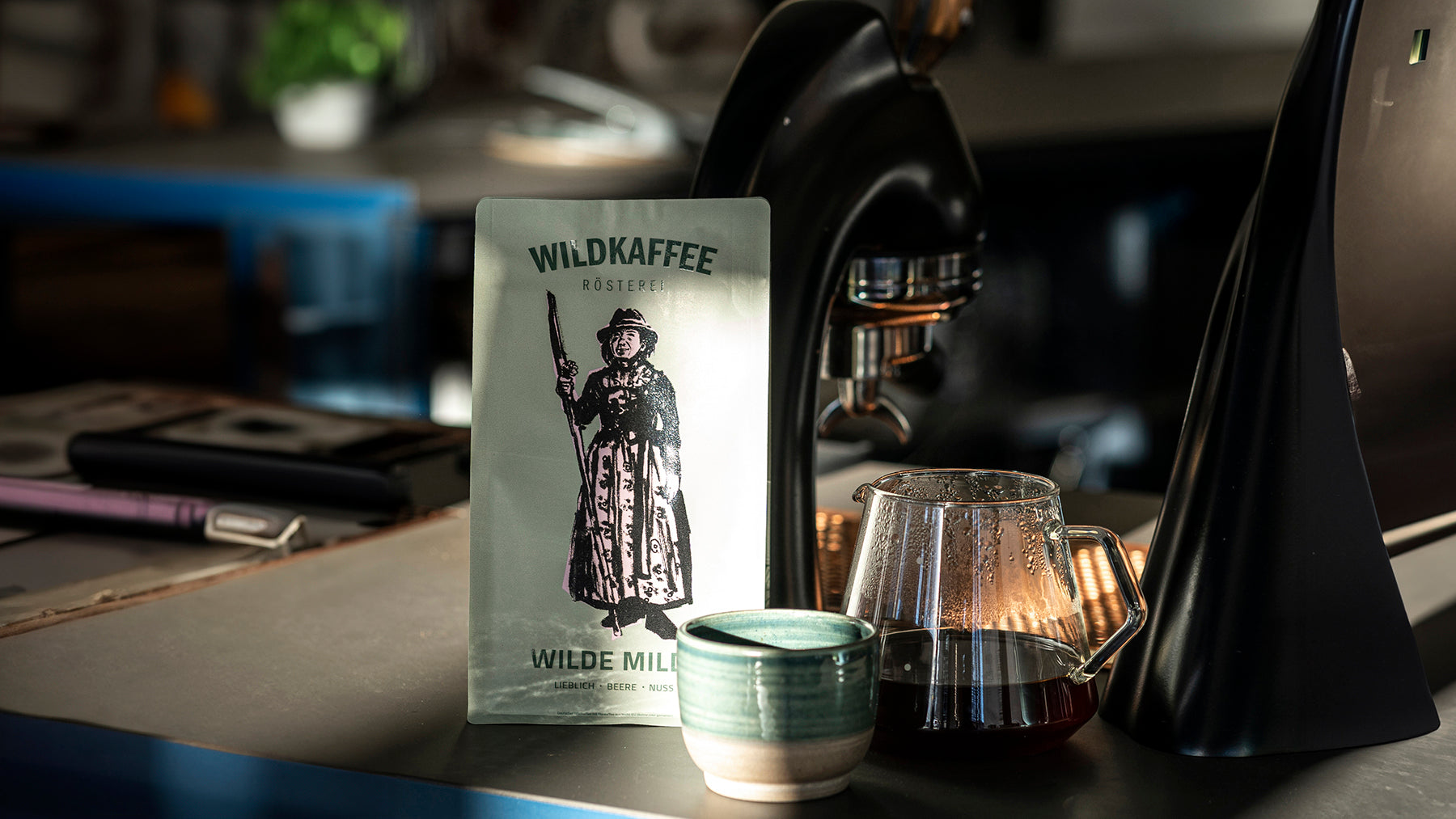All things are poisonous and nothing is without poison. Only the dose determines whether something is not poisonous. The Swiss doctor Paracelsus said this in the 16th century. And it still applies to many things today. Coffee, for example, can be good for your health, but if you drink 12 liters of it every day, it can also be harmful. Then the only question is: espresso or filter coffee - which is healthier? Provided it is consumed in the right amount.
Espresso or filter coffee - which is healthier: quantity
As mentioned at the beginning, coffee can be good for our health, but it can also be harmful. Or rather, what could harm us is the caffeine in coffee. We shouldn't consume too much of it. We shouldn't exceed 400 mg of caffeine per day, especially if we regularly consume caffeine products. It's not just coffee, teas (black and green) also contain caffeine, as do energy drinks and even cocoa. And it doesn't matter whether we drink filter coffee or espresso, but if we generally don't exceed the 400 mg range, then we can differentiate between filter coffee and espresso and which of the two drinks is "healthier". You can read more about the caffeine content of various coffee specialties here.
Espresso or filter coffee - which is healthier: differences

In 2019, Swedish researchers in Gothenburg conducted a study on coffee consumption. The participants had filled out questionnaires about their diet and provided blood samples in the 1990s. This group was monitored over the following years: 421 of the subjects developed type 2 diabetes after an average of seven years. They and their new blood samples were then compared with 421 healthy subjects in the 2019 study. And the result is very interesting.
The researchers found various biomarkers in the participants' blood that allowed them to distinguish how much filter or brewed coffee the participants had drunk. Brewed coffee is something like mocha or French press, i.e. full immersion.
The analysis then showed that those who drank two to three cups of filter coffee per day had a 60 percent lower risk of diabetes than those who drank less filter coffee. The consumption of direct full immersion coffee, on the other hand, had no influence on the risk of diabetes.
Espresso or filter coffee - which is healthier: The filter makes the difference
This result is probably due to the presence or absence of diterpenes in coffee. Diterpenes have a negative effect on blood fats and the amount of the amino acid homocysteine in the blood. The latter is a known risk factor for type 2 diabetes. Diterpenes remain in full-immersion coffee or directly brewed coffee, whereas in filter coffee they remain in the filter paper and do not end up in the drink. Coffee filtered with filter paper is therefore healthier or less harmful to the body. Above all, according to the study, the positive effects of the other coffee ingredients can be absorbed much better without diterpenes.
Espresso or filter coffee - which is healthier: Espresso
Since espresso is prepared without a filter, the Swedish study assumes that it provides just as little protection against type 2 diabetes as brewed coffee. However, effects on metabolism do not depend exclusively on whether the coffee is filtered or not, but also on other parameters of preparation.
Espresso or filter coffee - which is healthier: ingredients
Coffee itself is not harmful to health. On the contrary, it contains many substances that are good for our health: magnesium, potassium and vitamin B3. It is also rich in secondary plant substances such as polyphenols and alkaloids, essential antioxidants that have an anti-inflammatory effect and protect against free radicals that attack the structure of cells and are partly responsible for the development of various diseases such as cancer and cardiovascular diseases. Coffee can also have a positive effect on intestinal health as well as on sugar and fat metabolism. On top of that, it boosts the metabolism and can therefore also help with weight loss.
Espresso or filter coffee - which is healthier: the preparation
So we still owe you an answer to the question of which method of preparing coffee is the healthiest. It is filter coffee. Then comes espresso and then unfiltered coffee like from a French press and mocha. This is because the harmful substances, such as diterpenes, get caught in the filter paper.
Espresso or filter coffee - which is healthier: the roasting method

Now comes a very important tip: the roasting method is also very important when it comes to whether coffee is healthy or harmful. Industrially roasted coffee is often only burnt on the outside and is still raw on the inside, which makes it difficult to digest as a drink and irritates the stomach lining. With a gentle drum roasting process, like ours, the valuable coffee oils are bound, positive ingredients are expanded and negative substances are broken down during the roasting process. The burnt ingredients in the coffee that are created during industrial roasting promote high blood pressure because the body has to use significantly more energy to break them down.
Espresso or filter coffee - which is healthier: how to drink it
And ultimately, the way you drink coffee determines how healthy or unhealthy it is. If you put 10 spoonfuls of sugar in an espresso and drink it all, your diabetologist and your dentist will be happy, but you won't. Unfortunately, milk or cream in coffee also makes it harder to digest than without. It also has a lot more calories. It is also better if the coffee powder does not come into contact with the water for too long during preparation, otherwise the harmful substances are extracted. So, for example, it is better to drink an Americano than a Lungo. With an Americano, you only brew an espresso and mix it with hot water. Whereas with a Lungo, the water is pressed through the coffee powder for longer, thus extracting more harmful substances.
Espresso or filter coffee - which is healthier: Conclusion
So let's summarize briefly: coffee is healthy. If it is roasted and prepared correctly. Industrial roasting can have a negative effect on high blood pressure, so it is better to choose gently roasted coffee from small roasters. With milk, coffee is harder to digest and has more calories, and with sugar, well, sugar is generally not so healthy. But a good coffee is sweet in itself and once you get used to drinking coffee without sugar, it tastes much better. When it comes to espresso or filter coffee, filter coffee wins the race as the healthiest coffee. It is important that the coffee has been filtered using filter paper, because that is where the unhealthy substances such as diterpenes get stuck. What else? The amount of coffee is important: you shouldn't drink too much either. You shouldn't exceed an amount of 400 mg of caffeine per day. That's about 4 to 5 cups of filter coffee or 6 to 7 espressos. And we think that would be enough to get you through the day. and also through the evening, but only if you can still sleep well after consuming caffeine.


